The Introduction of College of Life Sciences and Oceanography of Shenzhen University
The College of Life Sciences and Oceanography of Shenzhen University originated from the Laboratory of Life Sciences founded in 1989. In 1997, the Department of Bioengineering was established. In 2002, the College of Life Sciences (CLS) was established, and Academician Jiazan Ni of the Chinese Academy of Sciences served as the first dean. In June 2015, CLS was renamed as College of Life Sciences and Oceanography (CLSO).
CLSO consists of world renowned and well-reputed faculties, including academicians of Chinese Academy of Sciences. CLSO is comprised of five undergraduate majors, including Biotechnology, Biological sciences, Biological sciences (normal), Marine sciences, and Biological engineering. Among them, Biotechnology is a top-ranked and characteristic specialty in Guangdong Province. Biosciences is a characteristic major in Guangdong Province. CLSO also consists of two master's degree authorization locations of primary discipline, including biology, ecology, and one doctoral degree authorization location of primary discipline in biology. In CLSO, there are excellent equipments serving for teaching and research, with a total value of 180 million RMB. In addition, there are multiple high-level platforms as well as key laboratories, including three key research platforms of Guangdong Province (Guangdong Provincial Key Laboratory for Plant Epigenetics, Guangdong Technology Research Center for Marine Algae Bioengineering, Biological Science Teaching Experimental Center), three Shenzhen key laboratories (Shenzhen Key Laboratory of Microbial Genetic Engineering, Shenzhen Key Laboratory of Marine Bioresource and Eco-environmental Science, Shenzhen Engineering Laboratory for Marine Algal Biotechnology), nine university-level institutes (centers), and public technology platforms for proteomics, genomics, structural biology, and molecular and cell biology.
CLSO is dedicated to scientific research and innovation. Over the past 3 years, the college undertook 189 scientific research projects with a total funding of nearly 160 million RMB, including two key research and development plans of the Ministry of Science and Technology, 51 national natural science fund projects (including one major research plan and one major cultivation project). There are two provincial and ministerial level scientific and technological achievement awards, 58 national invention patent authorization obtained, and 331 SCI-indexed papers published. In 2019, a full research article was published in Nature with Shenzhen University as the first affiliation for the first time since the establishment of Shenzhen University.
CLSO aims at cultivating innovative and entrepreneurial students with fruitful results There are "Innovation Experiment Class", "Entrepreneurship Practice Class" and "Ocean Elite Class", as well as the "3+1+1" joint training project with Auckland University of Technology and Michigan Technological University. CLSO also cooperated with over 60 biotechnology-related enterprises in Shenzhen to implement the "Industry-University-Research" integrated talent training program. Our students have achieved outstanding results in international and domestic competition, including 11 international awards, 24 national awards and 21 provincial awards in the six major domestic and international discipline and skill competitions. The students have also won the highest prize of the "Challenge Cup" National College Students Extracurricular Science and Technology Competition, and some were selected as the "Xiaoping Technology Innovation Team". The iGEM (International Genetic Engineering Machine Competition) team won five gold and one bronze medals, three individual awards and five individual nominations. In 2018, the iGEM team won the third place in the undergraduate group in the world, which was the best achievement among the Asian college competition teams that year.
Adhering to the philosophy of "Study the origin of life, investigate the source of ocean, build the way of science, and cultivate the talents for innovation ", CLSO cultivates high-quality talents for innovation and entrepreneurship with the spirit of reform and innovation.
Introduction of Biology
1-Faculties: Professors 38, Associate Professors 25, Assistant Professors 24;
2-Academic Institutions and Platforms including Guangdong Provincial Key Laboratory for Plant Epigenetics, Guangdong Technology Research Center for Marine Algae Bioengineering, Shenzhen Key Laboratory of Marine Bioresource and Eco-environmental Science et al.
3-Research Groups: (1) Chemical Biology; (2) Hydrobiology; (3) Plant Science; (4) Physiology and Molecular Biology; (5) Marine Biology/Ecology; (6) Marine Research Centre; (7) Microbiology Science
中文姓名 |
謝寧 |
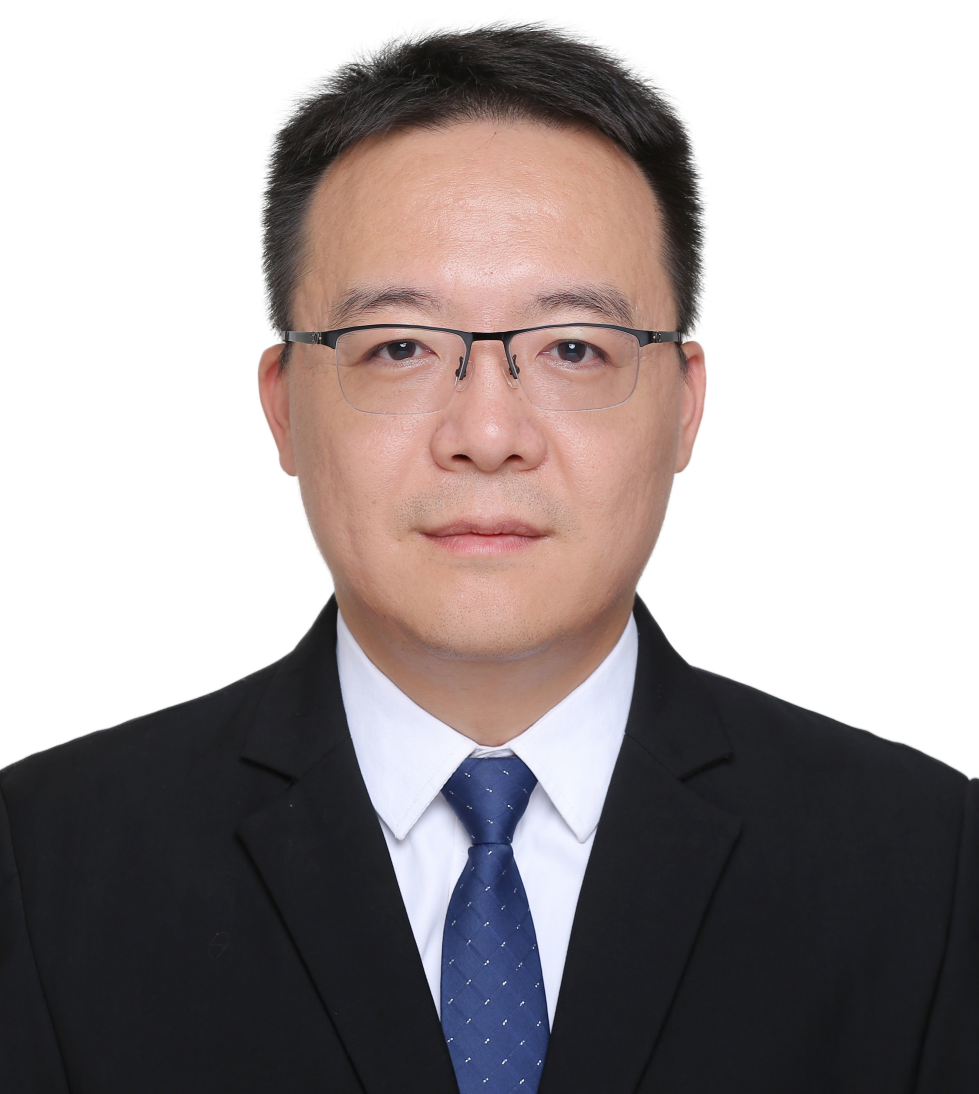
|
英文名 |
XIE NING |
聯系郵箱 |
Ning.xie@szu.edu.cn |
中文簡介 |
謝寧,深圳大學生命與海洋科學院副教授,副院長,博士生導師,廣東省杰出青年基金獲得者。2014年博士畢業于巴黎第七大學(現巴黎西岱大學),博士課題在巴黎薩克雷大學微生物遺傳研究所完成。博士畢業后在法國國家科研中心做博士后,2015年進入深圳大學工作。專注于絲狀真菌研究多年,主要從事絲狀真菌衰老、有性生殖遺傳調控機制和系統發育及分類等研究。通過發掘真菌資源、解析真菌發育調控機制和改造工業菌株等研究手段,推動真菌工業菌株的轉化及應用。主持國家自然科學基金、國家重點研發計劃子課題、廣東省自然科學基金,廣東省教育廳特色創新項目和深圳市自然科學基金等10余項科研項目。帶領團隊在Biotecnhology advances、Fungal diversity、Mycosphere、Environmental microbiology、Journal of fungi、Frontiers in microbiology和Developmental biology等雜志上發表研究論文30余篇,其中熱點論文2篇(前1‰),高被引論文4篇,申請發明專利4項,研究成果獲得省部級科技進步二等獎(第2完成人)。指導本科生參加比賽多次獲獎,2018年作為共同指導老師參加國際基因工程機器大賽(iGEM)進入Finalist,獲得全球第三名,同時獲“最佳制造類項目獎”和“最佳產品設計”兩個單項獎,是當年亞洲高校最佳成績。目前指導研究生3名,指導的多名學生赴國內外知名高校繼續深造。擔任中國發酵產業協會微生物育種工程與應用評價分會理事、農業農村部農藥登記評審委員會委員,深圳市微生物基因工程重點實驗室副主任。2015年被認定為深圳市高層次人才,2017年被認定為南山區領航人才,2022被評為深圳大學“優秀碩士研究生導師”。
|
英文簡介 |
Xie Ning, Associate Professor, Deputy dean of college of life science and Oceanography. He has researched in mycology for 16 years. His research is mainly in the following two directions.
1. Characterization of the mechanism of the fruiting bodies development in a filamentous fungus Podospora anserina.The fruiting body is an important sexual reproduction organ for fungi.The regulation mechanism of fruiting body formation has not been completely studied. We used different methods to study the regulation mechanism of fruiting body development in a model filamentous fungus Podospora anserina. 2.Diversity and Salt Tolerance Mechanisms in Marine Fungi. Marine fungi represent a diverse group that inhabits various saline environments, from mangroves to deep-sea ecosystems. These fungi play vital ecological roles, including decomposing organic matter and participating in nutrient cycling. Additionally, many marine fungi have adapted to thrive in high-salt conditions, displaying unique salt tolerance mechanisms. Understanding the salt tolerance mechanisms in marine fungi is crucial, as it offers insights into how organisms adapt to extreme environments and could have potential applications in biotechnology, including bioremediation. We used various methods to explore the diversity of marine fungi and study the physiological and molecular mechanisms behind their salt tolerance. Research funds: National Key R&D Program of China; National Natural Science Foundation of China; Basic and Applied Basic Research Fund of Guangdong Province.
|
中文姓名 |
劉瓊 |
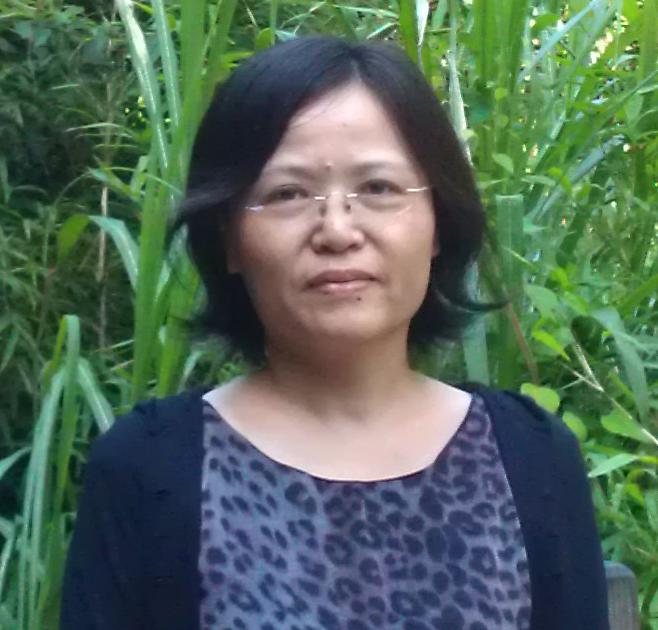 |
英文名 |
Qiong Liu |
聯系郵箱 |
liuqiong@szu.edu.cn |
中文簡介 |
1987和1990年于華中科技大學分別獲學士和碩士學位;1990-1995年任教華中科技大學。1995-1999年于丹麥Roskilde大學先后作訪問學者和助研并于1998年獲博士學位。1999-2000年于瑞典Karolinska研究所作博士后。2000-2005年為華中科技大學副教授;2006為深圳大學教授。長期致力于微量元素生物效應研究。近年著重研究阿爾茨海默癥早期檢測方法和干預藥物。主持科研項目國家級6項、省部級4項、市級4項。發表學術論文百余篇、專利13項、專著章節6本。獲深圳市自然科學二等獎、教育部高等學校自然科學二等獎,深圳市孔雀計劃B類人才。 |
英文簡介 |
Qiong Liu received her Bachelor and Master of Science Degrees from Huazhong University of Science and Technology in 1987 and 1990, respectively, and started to teach at the same university from 1990 to 1995. From 1995-1999, she became a visiting scholar and then a research assistant at Roskilde University in Denmark, and received her Ph.D. Degree in 1998. From 1999-2000, she did her postdoctoral work at the Institute of Karolinska, Sweden. From 2000 to 2005, she was an associate professor of Huazhong University of Science and Technology. From 2006 till now, she has been being a professor of Shenzhen University and committed to the study of trace elements and their biological effects. In recent years, her scientific researches focus on Alzheimer’s disease, especially the method of early-stage detection and the drugs of prevention and treatment. She has presided over 14 scientific research projects and published more than 100 academic papers, patents and monograph chapters. She was awarded the second prizes of Natural Science from the Shenzhen Municipal Government and the Ministry of Education of China, as well as the class B talent of Shenzhen Peacock Program.
|
中文姓名 |
劉剛 |
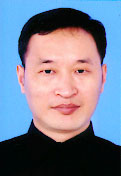 |
英文名 |
Gang Liu |
聯系郵箱 |
zjuliug@szu.edu.cn |
中文簡介 |
1997年畢業于浙江大學生生物工程系,獲博士學位。1999年至2001年于香港理工大學應用生物與化學科技系做博士后研究,2001年至今任深圳大學生物工程系副教授、教授。主要研究方向為應用微生物學和酶基因工程。我們的研究致力于篩選新的纖維素酶和輔助活性蛋白,提高木質素纖維素的酶水解效率,促進二代生物煉制技術的工業化應用。我們在里氏木霉中建立了高效的蛋白質表達系統。利用這些表達系統,通過RNA干擾、基因敲除或過度表達來調節里氏木霉中纖維素酶轉錄因子如XyrI、CreI、Ace I等的表達水平,并獲得纖維素酶生產率提高的重組里氏木霉菌株。通過在里氏木霉表達系統中表達基因和純化重組蛋白,篩選并鑒定了許多新的纖維素酶和裂解多糖單氧化酶。現在我們正在研究裂解多糖單氧化酶的高通量測定方法,并指導這些酶的進化。在研項目:國家自然科學基金項目、廣東省自然科學基金、深圳市基礎研究重點項目。 |
英文簡介 |
Ph. D, Zhejiang University, Biochemical Engineering (1997). Postdoc, the HongKong Polytech University (2001). We are interested in screening new cellulase and auxiliary active proteins for lignin cellulose and improving their productivity for second generation biorefinery applications. We have established efficient protein expression systems in Trichoderma reesei. Using these expression systems, we modulated the expression levels of the cellulase transcription factors such as XyrI, CreI, Ace I, etc., in T. reesei through RNA interference, gene knockout, or over expression, and obtained recombinant T. reesei strains with elevated cellulase productivity. We have screened and characterized a number of new cellulases and lytic polysacchride monooxidases through expressing the genes in the T. reesei expression systems and purifiing the recombinant proteins. Now we are working on high througput assay methods for lytic polysacchride monooxidase and directed evolution of these enzymes. Research funds: National Natural Science Foundation of China Project, Natural Science Foundation of Guangdong Province, the Shenzhen Municipal Science and Technology Basic Research Program |
中文姓名 |
賈彬 |
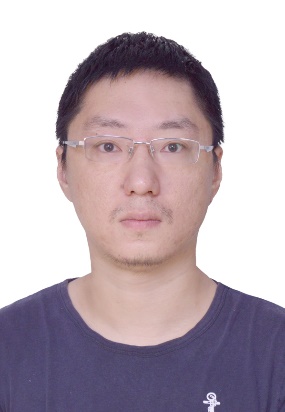
|
英文名 |
Jia Bin |
聯系郵箱 |
Jiabin@szu.edu.cn |
中文簡介 |
男,理學博士,副研究員,碩士生導師,深圳市高層次人才。現為深圳大學生命與海洋科學學院助理教授,海洋科學系副主任。主要從事與微藻相關的分子生物學研究。在微藻中建立了多基因表達調控技術,實現了包括多種功能蛋白和次生代謝類產物在微藻中的高效表達。先后主持國家及省市級課題5項,發表相關學術論文十余篇,完成發明專利8項。擬招生研究方向:1.光合微藻基因高效編輯與外源基因的高效表達2.萊茵衣藻為底盤的合成生物學研究
|
英文簡介 |
Male, Doctor of Science, associate researcher, master supervisor, high-level talent in Shenzhen. He is currently an assistant professor and deputy director of the Department of Marine Sciences at the School of Life and Ocean Sciences, Shenzhen University. He is mainly engaged in molecular biology research related to microalgae. He established multi-gene expression regulation technology in microalgae, and realized the high level expression of multiple functional proteins and secondary metabolites in microalgae. He has presided over 5 national, provincial and municipal research projects, published more than ten related academic papers, and completed 8 invention patents.
|
中文姓名 |
尚琛晶 |

|
英文名 |
Chenjing Shang |
聯系郵箱 |
cjshang@szu.edu.cn |
中文簡介 |
尚琛晶,深圳大學生命與海洋科學院研究員,博士生導師。2015年博士畢業于比利時根特大學,在中國科學院南海海洋研究所做博士后,2018年5月進入深圳大學工作。發表研究論文30余篇,以第一作者和通訊作者發表學術論文27篇。主持國家重點研發計劃課題、國家自然科學基金、廣東省自然科學基金等10余項科研項目,授權發明專利9項。指導研究生7名,博士后6名。指導大學生參加多項競賽獲得優異成績。2018年被認定為深圳市高層次人才,2019年被認定為南山區領航人才。擬招生方向:海洋資源可持續利用(海洋生物能源、海洋可再生能源等)
|
英文簡介 |
Dr. Chenjing Shang is currently an Scientific Reseracher at College of Life Sciences and Oceanography, Shenzhen University, China. Dr. Shang’s research interest covers marine ecology and Sustainable use of marine resources (marine bio-energy, marine renewable energy, etc.) . Chenjing obtained her Ph.D. in Applied Biological Sciences from Ghent University, Belgium, in 2015. Then she carried out post-doc researches in the Chinese Academy of Sciences (2016-2018). She has presided over 10 scientific research projects and published over 30 academic papers, 9 patents and 4 book chapters. She was awarded “Pearl River Talent Plan” overseas young talents introduction program of Guangdong Province and the talent of Shenzhen Peacock Program. Research funds: National Key R&D Program of China; National Natural Science Foundation of China; Basic and Applied Basic Research Fund of Guangdong Province. |
中文姓名 |
王江新 |
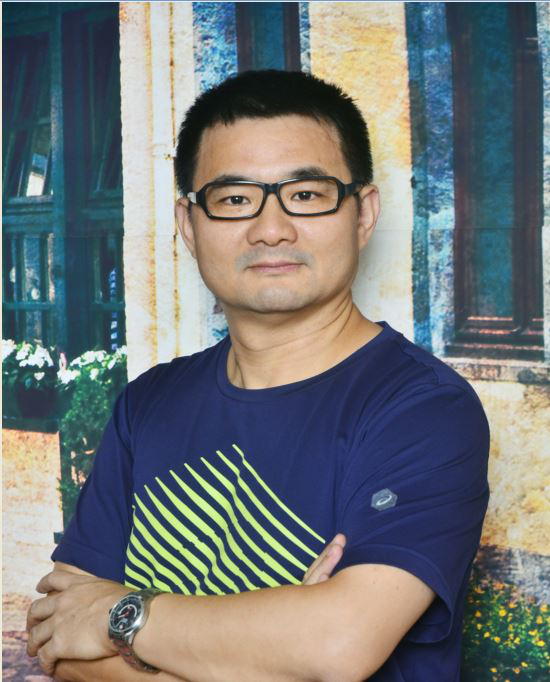
|
英文名 |
Jiangxin (John)WANG |
聯系郵箱 |
jxwang@szu.edu.cn |
中文簡介 |
王江新,遺傳學博士,深圳大學生命與海洋科學學院教授。1996年入中科院水生所學習藻類分類及分子生物學;2002年在巴黎高等師范學校(école Normale Supérieure, ENS,Paris)從事藍藻蛋白組及生物信息學研究;2004-2014年分別在美國亞利桑那州大學做博士后,涉及微藻環境分子毒理和微藻生物能源研究;亞利桑那州大學生物設計研究所從事系統生物學及合成生物學、單細胞組學研究。迄今,共發表論文110余篇,引用4,299余次,H-index 33(截至2024年9月),以第一發明人擁有中國專利6項,申請專利6項。2014年加入深圳大學生命與海洋科學學院,以裸藻作為主要研究對象,進行基礎研究和成果轉化。主要從事以下幾個方面的研究:1)微藻系統生物學;2)微藻合成生物學。開發高通量的微藻基因組編輯技術,興趣集中在生物能源及高附加值生物產品(如DHA和蝦青素)以及人工合成細胞器;3)單細胞組學。研究方法涉及單細胞的獲取、單細胞qRT-PCR、單細胞轉錄組分析;4)課題組也致力于各種裸藻功能性活性物質的大規模化生產、提取及終端產品的研發和產業化。
|
英文簡介 |
Jiangxin Wang received his PhD degree in Genetics from the Institute of Hydrobiology, Chinese Academy of Sciences, Wuhan, China in 2003. After graduation he then joined the laboratory of Dr. Jean Houmard at the Department of Biologie at the CNRS-ENS, Paris, in 2003 as a postdoctoral researcher. He also worked at Arizona State University, Tempe, US as a research associate and research scientist from 2004 to 2012. Dr. Wang now is a Professor at the School of Life Sciences and Oceanography, Shenzhen University, Shenzhen, China. His research is focused on bioactive compounds from marine and freshwater microbes and single-celled OMICS. In particular, Dr. Wang is interested in a green protist, Euglena gracilis, and the role of paramylon (beat-1,3-glucan) in the immune system and the possibilities of using paramylon as potential function foods and prodrugs. Dr. Wang is using systems biology and synthetic biology tools to fulfill his academic goals. Also, he is the associate editor of Frontiers in Pharmacology. Dr. Wang currently published 110 peer-reviewed scientific articles, with 31 H-index and total 4,299 citations (until September, 2024). |
中文姓名 |
周海超 |

|
英文名 |
Zhou Haichao |
聯系郵箱 |
zhouhc@szu.edu.cn |
中文簡介 |
周海超,理學博士,長聘副教授/特聘研究員。近20年致力于生態學研究工作,特別是河口與濱海紅樹林濕地生態系統功能研究與生態修復,具體研究興趣包括:1)近海與河口生態系統的生物地球化學循環與生態功能研究;2)紅樹林等典型濱海濕地的生態恢復技術探索與應用;3)紅樹林濕地生態系統生物多樣性維持機理與提升技術研發。主持國家自然科學基金(青年和面上基金)、科技部重點研發計劃子課題、廣東省自然科學基金、深圳市科創委基礎研究重點項目和可持續發展科技專項,以及企業科研服務項目等40余個。主要研究成果已發表SCI論文70余篇,Google學術的個人h-index為27,近5年引用超過1300次。先后獲得深圳市海外高層次人才,深圳市高層次人才和深圳大學新銳研究生導師。 |
英文簡介 |
Zhou Haichao, PhD, Associate Professor. With nearly 20 years of experience in ecology, Dr. Zhou focuses on the functions and ecological restoration of estuarine and coastal mangrove wetland ecosystems. His research interests include: 1) Biogeochemical cycles and ecological functions of coastal and estuarine ecosystems; 2) Exploration and application of ecological restoration techniques for mangroves and other coastal wetlands; 3) Mechanisms and enhancement techniques for maintaining biodiversity in mangrove ecosystems. He has led over 40 projects, including those funded by the National Natural Science Foundation, the Ministry of Science and Technology, Guangdong Province, and various industry partnerships. His research has resulted in over 70 SCI publications, with a Google Scholar h-index of 27 and more than 1,300 citations in the past five years. Dr. Zhou has received awards such as Shenzhen Overseas High-Level Talent and Shenzhen High-Level Talent.
|


 大发888代理佣金|
战神百家乐娱乐|
百家乐官网机器手怎么做弊|
百家乐投注信用最好的|
浮山县|
百家乐国际娱乐场|
大亨百家乐官网游戏|
杰克百家乐玩法|
百家乐官网赌具哪里最好|
米其林百家乐的玩法技巧和规则|
百家乐官网牌数计算法|
曼哈顿百家乐娱乐城|
视频百家乐官网信誉|
大发888游乐场下载|
G3百家乐官网的玩法技巧和规则|
菲律宾新利国际|
龍城百家乐的玩法技巧和规则|
百家乐官网改单软件|
劳力士百家乐的玩法技巧和规则|
叶氏百家乐官网平注技巧|
威尼斯人娱乐城活动|
大佬百家乐官网的玩法技巧和规则|
田阳县|
大发888真人娱乐场|
百家乐视频挖坑|
大家赢百家乐官网投注|
波胆|
百家乐代理在线游戏可信吗网上哪家平台信誉好安全
|
大发888娱乐城可靠吗|
百家乐送彩金平台|
百家乐官网正确的打法|
棋牌室|
沙龙百家乐娱乐城|
百家乐官网的连庄连闲|
足球竞猜规则|
百家乐直杀|
rmb百家乐官网的玩法技巧和规则
木星百家乐官网的玩法技巧和规则
|
百家乐路单怎样|
百家乐视频游戏注册|
百家乐官网发牌规|
百家乐官网tt娱乐场开户注册
|
大发888代理佣金|
战神百家乐娱乐|
百家乐官网机器手怎么做弊|
百家乐投注信用最好的|
浮山县|
百家乐国际娱乐场|
大亨百家乐官网游戏|
杰克百家乐玩法|
百家乐官网赌具哪里最好|
米其林百家乐的玩法技巧和规则|
百家乐官网牌数计算法|
曼哈顿百家乐娱乐城|
视频百家乐官网信誉|
大发888游乐场下载|
G3百家乐官网的玩法技巧和规则|
菲律宾新利国际|
龍城百家乐的玩法技巧和规则|
百家乐官网改单软件|
劳力士百家乐的玩法技巧和规则|
叶氏百家乐官网平注技巧|
威尼斯人娱乐城活动|
大佬百家乐官网的玩法技巧和规则|
田阳县|
大发888真人娱乐场|
百家乐视频挖坑|
大家赢百家乐官网投注|
波胆|
百家乐代理在线游戏可信吗网上哪家平台信誉好安全
|
大发888娱乐城可靠吗|
百家乐送彩金平台|
百家乐官网正确的打法|
棋牌室|
沙龙百家乐娱乐城|
百家乐官网的连庄连闲|
足球竞猜规则|
百家乐直杀|
rmb百家乐官网的玩法技巧和规则
木星百家乐官网的玩法技巧和规则
|
百家乐路单怎样|
百家乐视频游戏注册|
百家乐官网发牌规|
百家乐官网tt娱乐场开户注册
|